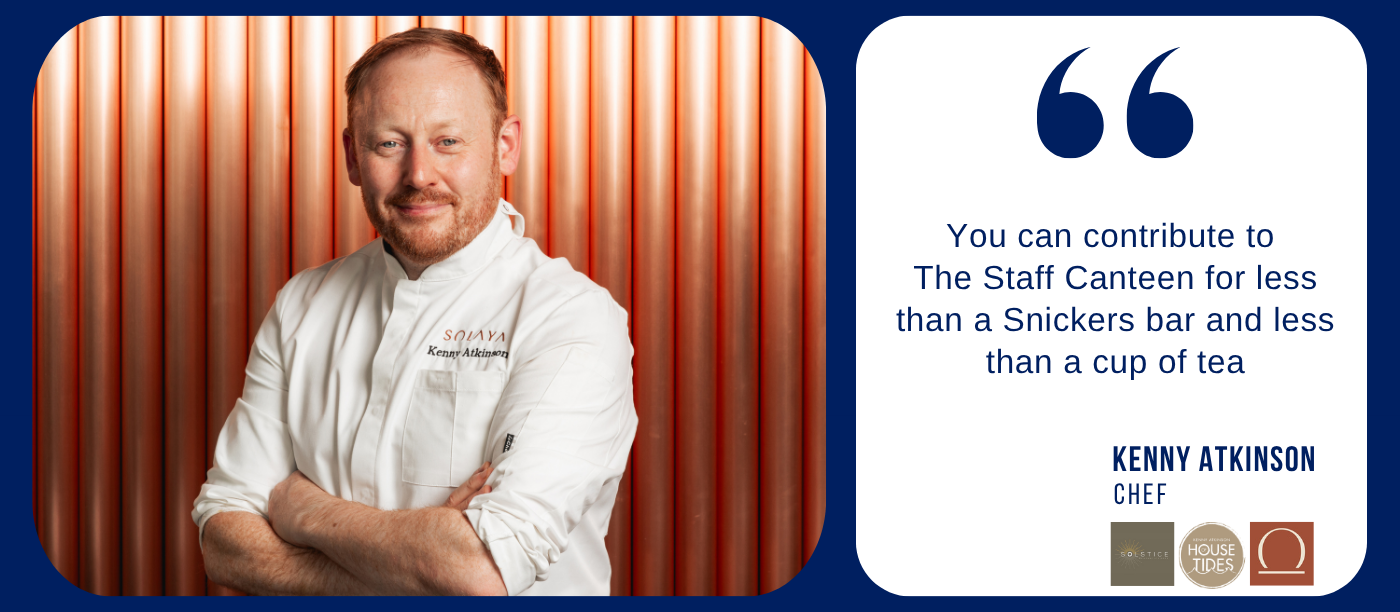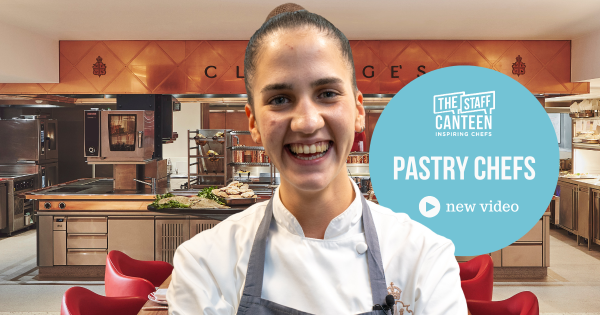getting into that mind-set in this country, like the French have already got, where food becomes more of your day, more of your life, rather than just a thing that you have because you need to eat.
You’ve also worked in some slightly different places as well, in a cookery school and as an Operations Manager, what kind of perspective has that given you?
Chefs were considered for a long time like cavemen and to an extent it was true. You know when you see Ainsley Harriot on TV and he is just larger than life and he’s got this burst of personality. Then you see a Michelin-starred chef who has only ever been in the kitchen, they don’t know how to respond to the public and they’re only on TV because they have a Michelin star. The two separate themselves out massively and I wanted to be something in the middle. So that was what made me go to the cookery school.
Then from there I went to a bakery. I always loved bread and I really wanted to make sure that when I was the Exec Chef somewhere, the head baker couldn’t pull the wool over my eyes, the chocolatier couldn’t pull the wool over my eyes, my sous chefs couldn’t pull the wool over my eyes. I wanted to make sure I knew everything about everything in my kitchen. And that’s the reason I went to Degustibus – to learn the real scratch bakery method and systems, and that’s what I learnt there.
Then I changed to Young’s Bakeries, where I was Operations Manager, because I felt I needed to learn the business side of how patisserie works, so how, logistically, you dealt with getting cakes from one place to another, how you dealt with having staff in different outlets. Again, I think it’s served me very well as this hotel is very multi-outlet.
Tell us about the Coupe du Monde, the World Cup of the pastry world, how were you chosen to be in that squad?

Yeah that was a bit of a weird situation. I offered to do the driving to the European Cup, where you take all of the team’s equipment, all of their pre-prepared stuff and basically had to drive it to the event which was in Geneva.
When you go to the World Cup you’re adding an ice carver to the team. They already had the plan that Barry was going to do the chocolate, Nicholas was going to do ice, then they were going to bring in another guy to do sugar. So I just sort of hung around in the background helping out because that’s what we do in this industry.
We’re part of a club and we help each other. And then in August suddenly one day Nicholas came to a meeting and said ‘guys I’m sorry, I’m leaving this place to go to Hong Kong’. So very quickly in a meeting they said, ‘Andy you were the reserve candidate because of what you did in the Europeans, Nicholas is gone so the whole point of having a reserve candidate is that you can step in if anything happens, so would you like to do the ice?’ I said, ‘well I’ve never done it before and it’s August and the competition is in January but yes I’ll give it a bash’.
I went through some very intense training for the next three or four months and then we went to the Coupe du Monde and everything went completely wrong on the day. Twenty minutes in to my ice carving and the ice block snapped in half, so I still got sixth place in the competition for my ice carving. That was that journey: it was insanely hard.
I had to build up skills in a completely new area because ice carving is very, very different to

everything else. In all other pastry competitions, with chocolate and sugar and everything like that, you build up a sculpture, you add things to your sculpture. This is the exact opposite, you have to take away from a solid block and it’s a completely different way of working for a pastry chef.
You seem like someone with a clear plan of where you want to be. What else is on your agenda?
Definitely to stay involved with the pastry team. Go through the next Coupe du Monde, either train the next ice carver or be the next ice carver, I can probably get away with doing it one time.
And then I would love to have my own pastry shop – a beautiful patisserie serving chocolates and cakes. That will be my little dream.






 Chefs were considered for a long time like cavemen and to an extent it was true. You know when you see Ainsley Harriot on TV and he is just larger than life and he’s got this burst of personality. Then you see a Michelin-starred chef who has only ever been in the kitchen, they don’t know how to respond to the public and they’re only on TV because they have a Michelin star. The two separate themselves out massively and I wanted to be something in the middle. So that was what made me go to the cookery school.
Then from there I went to a bakery. I always loved bread and I really wanted to make sure that when I was the Exec Chef somewhere, the head baker couldn’t pull the wool over my eyes, the chocolatier couldn’t pull the wool over my eyes, my sous chefs couldn’t pull the wool over my eyes. I wanted to make sure I knew everything about everything in my kitchen. And that’s the reason I went to Degustibus – to learn the real scratch bakery method and systems, and that’s what I learnt there.
Then I changed to Young’s Bakeries, where I was Operations Manager, because I felt I needed to learn the business side of how patisserie works, so how, logistically, you dealt with getting cakes from one place to another, how you dealt with having staff in different outlets. Again, I think it’s served me very well as this hotel is very multi-outlet.
Tell us about the Coupe du Monde, the World Cup of the pastry world, how were you chosen to be in that squad?
Chefs were considered for a long time like cavemen and to an extent it was true. You know when you see Ainsley Harriot on TV and he is just larger than life and he’s got this burst of personality. Then you see a Michelin-starred chef who has only ever been in the kitchen, they don’t know how to respond to the public and they’re only on TV because they have a Michelin star. The two separate themselves out massively and I wanted to be something in the middle. So that was what made me go to the cookery school.
Then from there I went to a bakery. I always loved bread and I really wanted to make sure that when I was the Exec Chef somewhere, the head baker couldn’t pull the wool over my eyes, the chocolatier couldn’t pull the wool over my eyes, my sous chefs couldn’t pull the wool over my eyes. I wanted to make sure I knew everything about everything in my kitchen. And that’s the reason I went to Degustibus – to learn the real scratch bakery method and systems, and that’s what I learnt there.
Then I changed to Young’s Bakeries, where I was Operations Manager, because I felt I needed to learn the business side of how patisserie works, so how, logistically, you dealt with getting cakes from one place to another, how you dealt with having staff in different outlets. Again, I think it’s served me very well as this hotel is very multi-outlet.
Tell us about the Coupe du Monde, the World Cup of the pastry world, how were you chosen to be in that squad?

 everything else. In all other pastry competitions, with chocolate and sugar and everything like that, you build up a sculpture, you add things to your sculpture. This is the exact opposite, you have to take away from a solid block and it’s a completely different way of working for a pastry chef.
You seem like someone with a clear plan of where you want to be. What else is on your agenda?
Definitely to stay involved with the pastry team. Go through the next Coupe du Monde, either train the next ice carver or be the next ice carver, I can probably get away with doing it one time.
And then I would love to have my own pastry shop – a beautiful patisserie serving chocolates and cakes. That will be my little dream.
everything else. In all other pastry competitions, with chocolate and sugar and everything like that, you build up a sculpture, you add things to your sculpture. This is the exact opposite, you have to take away from a solid block and it’s a completely different way of working for a pastry chef.
You seem like someone with a clear plan of where you want to be. What else is on your agenda?
Definitely to stay involved with the pastry team. Go through the next Coupe du Monde, either train the next ice carver or be the next ice carver, I can probably get away with doing it one time.
And then I would love to have my own pastry shop – a beautiful patisserie serving chocolates and cakes. That will be my little dream.










